Amy Austin: An interview with TheatreWashington’s leading lady
After years as the publisher at the City Paper, Amy Austin took on a new role in life: Supporting the city's incredible theater community.

“Oh, I’m sorry. Can I take this real quick?”
Amy Austin picks up her phone and listens intently for a moment before responding.
“It was hanging on the back of the green chair when I last saw it. So I would look on the rail on the…. Downstairs. Okay, gotta go. Just ask Deirdre.”
“I’m sorry,” she says, before settling back into interview mode. “When they’re kids’ calls, I always think they’ve died. I have to pick up the phone because I’m worried that it’s something. But then it’s always something simple that they should already know. I don’t know if that’s a common mother reaction.”
The call was from from her 16-year-old, Eli. Austin has two more: David, 14, and Adelaide, also 16, the daughter of her wife of a decade, Deirdre Joy. Motherhood suits the former publisher of the Washington City Paper, who now leads TheatreWashington, an organization that supports and nurtures the local theater community and which, for 33 years, has bestowed the highly esteemed, very-much-so coveted Helen Hayes Awards.
Theater isn’t a new vocation for the Illinois native. Before her 15-year stint at the City Paper, Austin worked at the long defunct Horizons Theatre, whose mission was to present theater from a woman’s perspective. She also served as chair of the Theatre Lab School of Dramatic Arts for two decades. So, when Linda Levy Grossman stepped down as president and CEO of TheatreWashington in 2015, Austin — who had finally left the City Paper after yet another new set of owners took the helm (“I had eight bosses in seven years!”) — was the perfect choice to fill the void. She knows the city. She knows its theater. And, it’s safe to say, she’s passionate about both.
Austin, however, is modest about TheatreWashington’s growth and accomplishments since she took the helm, noting that some of the programs she’s overseeing had been put into place before her arrival. But she’s no less proud of the organization and its future potential as a conduit for promoting, fostering, and nurturing local theatre, helping to solve challenges for all of Washington’s diverse and varied stages.
Interestingly, Austin moved to Washington in the early ’80s with dreams of forging a career in acting.
“I enjoy acting very, very much,” says the warm, energetic 59-year-old. “But deep down I knew that I didn’t have the chutzpah to be an actress for life. I have this very vivid memory of standing next to Kim Schraf, an amazing actress who is still acting to this day, and hearing her say, ‘I’m gonna do this for the rest of my life.’ I thought, I cannot make that commitment. So, I switched to production management.”
Austin’s knowledge of the inner-workings of the theater world have helped inform her work at TheatreWashington, but her years at the City Paper — and her visibility in the post — have helped her strengthen bridges between local theater and the greater business community, with a goal to help all theaters, big and small, develop audiences eager to see live productions. She notes that Washington, D.C. is unique in its rabid love of theater, and she attributes it to our unique demographic.
“We’re not just the government town you see on TV,” she says, “and we know that. This is a very international city — it’s culturally very rich. The people who live and work here appreciate theater, and enjoy having it be a part of their lives. It’s a city that can support 90-plus theaters.” She pauses and smiles broadly. “I don’t know if you could say that about every city in the United States.”
METRO WEEKLY: So, let’s get to know you a bit. I don’t think I’ve ever asked you this, but where are you from originally?
AMY AUSTIN: I grew up in a small town — Princeton, Illinois. It’s a town of less than 10,000 people. We were two and a half hours south of Chicago. There’s an old marketing campaign for Illinois that used to say, “Just outside of Chicago there’s a place called Illinois.” And so that’s where I lived, that place outside of Chicago called Illinois.
MW: What was your childhood like?
AUSTIN: In Illinois, as far as you can see, you can just see the sky. There’s hardly anything there, so you just sort of had to invent your life. I did anything to keep myself sort of busy and keeping from recognizing that there was nothing going on in my small town. Theater, for me, became sort of an anchor starting in eighth grade.
MW: What kind of roles did you play? Do you remember?
AUSTIN: [Laughs.] Yeah. I did a brilliant Wicked Witch of the West in The Wizard of Oz. And I was also quite good as the Jewish mother role in Bye, Bye Birdie. I did a stint in Gypsy where I played the trumpet player in a community theater production.
I majored in theater in college, so theater was always a throughline for me. Theater has always been where I can make sense of the world — through theater and through the eyes of theater and through thinking about roles and people and plays. The discovery of being able to think about life and how it works through the eyes of characters and plays and playwrights.
MW: You talk about discovery. When did you first discover you were gay?
AUSTIN: I was a really late to the game in terms of coming out as a lesbian. I dated men for a long time throughout high school. Mostly I think of myself as a bisexual. I fell in love with a woman I met when I was doing theater, actually, and was really attracted to her. That’s what kickstarted the whole thing. Then I just decided, as long as you’re with a woman, you’re gay. So that’s how I identify.
MW: You started in theater in Washington in the ’80s, with Horizons Theatre, just as the scene began to explode.
AUSTIN: Yes, it was an explosion. Not many of us had seen theater like that before. People were starting their own companies that were going to grow into the institutions that they are today. There was theater in found spaces that you wouldn’t readily identify as theater spaces.
MW: Are there shows from that period that stuck out as unforgettable for you?
AUSTIN: [Source Theatre’s] Fool for Love, which was performed in an alley. Playing for Time at the Studio Theatre. That was extraordinary — Joy Zinoman had all the actresses shave their heads. You know, it’s funny with me and theater, I can remember moments, but that’s not how I retain information, by remembering the story, necessarily. I just remember emotional moments.
MW: It was an interesting period and it established Washington as a very unique, very powerful theater city.
AUSTIN: Yes, all these stepping stones led to where we are today. The theater right now is as exciting as it was during that time. But I would say that at that time, no one had ever seen theater like that before. There are things that are still happening that are pushing the boundaries of the genre — I still see those things happening today — but they’re not as new.

MW: How did you get involved with The City Paper?
AUSTIN: I applied for a job there and I was hired in the advertising department. Much like the theater, journalism was changing and evolving. The City Paper at the time — there were so many new concepts that had never been tried before. It was very new to have free distribution and not to have to pay for a subscription. And it was new to really focus on local in a way that hadn’t ever been done before. Personal ads, free classified ads, all those things were invented during the time that I was there. I started in advertising and became operations manager, then general manager, then publisher.
MW: You never actually owned the paper.
AUSTIN: No, I never owned the paper. But I acted like I owned it. At that point, I was responsible for all of it. I was responsible for all the editorial and all the sales and all the people that work there and all the design. But I saw it as more like making sure that all the pieces came together, both for the readers and for our internal workings.
MW: The City Paper really hit its heyday during your publishing tenure. It was massive every week.
AUSTIN: At one point it was 128 pages on average per week. Which is a lot of pages. That was before the revenue model crumbled.
MW: Under you, it was known for its longform, in-depth journalism.
AUSTIN: Journalism is like theater — you want to see the conflict. Good storytelling almost always involves conflict. We weren’t there to be boosters of the city. We were there to figure out what can we make better, what can we fix? What is really going on? What should you know about your city that you don’t? How is this really working? We had the ability to really take a look at people who weren’t doing as well in the city as they should. It was a really great resource to understand where you were.
There was no other way to get this kind of information besides having the City Paper in your hands. It was a joy to get to that point where you distributed the paper and people would come rushing to grab it out of the back of the trucks. The only way to understand what was going on around you was to get the City Paper. It was one of the few resources.
MW: Everything did change, for all of us in publishing. Was that a difficult time for you, watching things erode?
AUSTIN: It did have it’s challenges, but it really was one of my favorite times, because everything that you took for granted, that was always there, did start to go away, and you had to figure out what you were going to do that would be different. It was an imperative to understand what the core of your business was, what you should be doing and to find new ways to create revenue.
One of the things that we did at the time was to create one of my favorite things — the Crafty Bastards Arts and Crafts Festival. It came out of that time of us trying to understand what our brand was, and what we cared about. The festival took on a life of it’s own, became this incredible community event, where we would get 20,000 people to come shop for mostly local arts and crafts, handmade things, for one day. It became a revenue generator.
It wasn’t so much that stories weren’t being told. There was even more stories than ever being told because of the way in which we could write as much as you want online. We were not constricted by [physical] pages anymore. It became about how can you make money and still do the work that you care so much about? Early on we adapted and created a digital ad network and that was really fun to figure out. The revenue was still there. It was just moving into different forms and what part could you play in it.
MW: Were there any particular challenges to being the openly gay publisher of a non-gay publication?
AUSTIN: You know, one of the things I think about being gay is that you don’t have to really lead with being gay. It took me a while to teach myself to lead with being gay. Because there’s ways in which you could sit down in a meeting with a client and you could talk about your family life and your kids and not talk about your wife, for example. I think that the challenges were ones that I laid on myself.
We were living in an alternative environment at the City Paper. It wasn’t a big deal to anyone who worked for me or around me or my bosses. I wasn’t in an environment where that mattered. So that was very healthy. And very fortunate. It’s much harder when you live and work in an office where you can’t put pictures of your family around you. I know people who work at those environments still, where it’s not comfortable to be out where you work. I was fortunate never to have had that.
MW: Speaking of family, you have quite a sizable one.
AUSTIN: I remember when I came out to my parents, what my mother saw was that I wasn’t going to have a family, but I now have three kids. At that time, that really wasn’t something that people thought would happen if you were gay. I didn’t think it was going to happen, and then I decided it should happen. So I adopted two kids. I was a single mom for about six years.
MW: What made you decide to do it?
AUSTIN: I thought I would enjoy it. Not only enjoy parenting, but be a good parent. It was something I wanted to be a part of my life. I really love my siblings — I have two brothers and two sisters — so I wanted more than one child. I adopted twice so that they would have siblings. This was when I was in my early 40s.
MW: And your third child?
AUSTIN: Fast forward. I was introduced to Deirdre, my wife, through Holly Twyford, a local actress. Deirdre was a divorced lesbian with a daughter the same age as one of my sons. We got married 10 years ago.
MW: So, suddenly you have a family unit. A wife and three kids. How old are they?
AUSTIN: Two are 16, one is 14.
MW: My god. How are you surviving that?
AUSTIN: [Laughs.] Yeah. We’re in the midst of it now….
MW: Earlier you said, “I thought I would make a good parent.” Why did you think that?
AUSTIN: Because I grew up in a really good, solid family. I was taught how to be a good parent. I enjoy children very, very much. I love their willingness to see the world on their terms instead of adult terms. I just wanted to take that journey with them so that I would be involved in somebody’s life forever.
MW: Adopting can be considered a very selfless route to go.
AUSTIN: Well, I don’t know if it’s selfless, because one of the things that theater has taught me is that everybody does everything for a reason. Everybody does everything from their own want.
I’m very fulfilled being a mother. I think where I became headstrong was when I decided to be a single mother of two. I remember friends looking at me with raised eyebrows, saying, “You’re going to adopt again?” And me saying, gleefully, “Yes! Yes! I want them to have siblings!” So, off I went. And that’s where I really didn’t quite understand what I was getting myself into. There’s an expression that two is a lot more than two when you have kids. And that’s true. But I wouldn’t change what I did.
MW: Have you ever thought about it from the perspective that, by adopting, you gave these kids a life that maybe they might have not otherwise had?
AUSTIN: Yeah, yeah, absolutely. That’s the thing about adoption that’s so complicated. You aren’t the birth mother and are sort of brought together. From the child’s point of view it’s like, “How did you become in charge of me? How did I get here?” Everybody wants to know about their own life’s journey. When I was adopting, I saw other children going off to a completely different family. Somebody was going off to a farm in Texas. It’s part of the quality of life, this sort of random circumstances.

MW: You left the City Paper after fifteen years. How did you end up as the head of TheatreWashington?
AUSTIN: I was lucky. I took the summer off after leaving the City Paper, and Holly Twyford emailed me and said, “This job is open, you’d be good at it.” I was like, “Ah!” My ongoing passion for theater — I love theater, have always loved theater, and when I was at City Paper, I pushed that through, making our arts coverage really strong. And so TheatreWashington seemed like an opportunity to get back to those roots I had abandoned for journalism a long time ago.
MW: You’ve been at it a year and a half now. How is it?
AUSTIN: It’s been great. There’s ninety theaters in the community now — when I went to an early Helen Hayes Awards ceremony, there were maybe a dozen. And we rebranded a few years ago to TheatreWashington. We want to be more of an organizing group for the 90 theaters in the city.
MW: I didn’t realize there were that many producing theaters now.
AUSTIN: There is theater on the outreaches of the region. There’s this amazing theater in Tyson’s Corner called First Stage. There’s one in Herndon called NextStop. There’s the Hub Theater. There’s just this rich diversity of amazing community — one of the best, if not the best in the country.
MW: The awards are your centerpiece but what types of projects are you doing beyond them?
AUSTIN: The awards are wonderful and they work really well, and they give so much recognition to artists and the talent in the city, but there’s more work that the theaters want to do together. So that’s what we’ve started on. We had a summit in early January where we invited all the artistic directors and the managing directors, marketing and development people, to get together for a day. We had 180 people from over 70 institutions. This is the first time in this community where’s there’s been an organizing meeting like that. Where they can just talk about their shared concerns, and see if there’s ways that we can work together to make it better.
There’s a fund called Taking Care of Our Own that provides emergency funds for artists when they find themselves with medical conditions, or their car breaks down and they can’t get to rehearsal. We provide them ways to access these emergency funds for anybody who’s working in the community. So it’s work like that, that’s really vital and really helpful.
I’m working on a program called Theater Week. It’s ten days where you can see theater, just like Restaurant Week, for $15 and $35. In Restaurant Week, you get lunch for $15 and you get dinner for $35. So now you can get tickets to different theaters, some for $15, some for $35. We’re going to do that in September, when everybody’s seasons are opening, when there’s just so many things to see.
And I’m working on the Women’s Voices Festival, which is coming back in 2018. This is a community-driven approach to trying to solve the problem that women aren’t produced as much as men. It’s not that there are fewer women playwrights, it’s that there are fewer women who are produced. So the community got together and thought, “Let’s try to help with this.” They did it in 2015, and it’s coming back in early ’18. So, I’m excited about that.
I have lots of plans. I’d like to work on equity diversity and inclusion at a management and board level, with the institutions. Not only for what you see onstage and what’s backstage, but also in the institutions themselves. I think there are ways that we can organize conversations around that, that could involve the whole community. We’re working on ideas about how can we be better mentors in the community, how can we market so that going to the theater is as common as going to a movie? Like, how can we convince more people to go to the theater, and try to work to get more people to go.
You go to the theater and you get this really intimate, wonderful experience, where you’re connected as humans. We’re very connected in the theater in ways that you cannot find in any other art form. And I love that about the theater.
MW: The Helen Hayes Awards are Monday night. Here’s hoping you don’t have a La La Land/Moonlight-style snafu.
AUSTIN: [Laughs.] We’ve got to get our envelopes straight.
MW: I’m kidding, but does the possibility of that happening concern you at all?
AUSTIN: It didn’t concern me until I watched the Oscars! I mean, what a boondoggle. I happened to be watching live, and I was like, “What is that person with the mike doing back there?” I mean, you could see him sort of scurrying around, and you couldn’t tell if it was a joke, or for real. It was extraordinary. It was all because of a photo opportunity that somebody personally wanted to take.
MW: So, this is unlikely to happen on Monday night.
AUSTIN: This is unlikely to happen.
MW: You’re not going to be Tweeting backstage.
AUSTIN: No, I won’t be distracted.
MW: You’re not going to go, “I need to get a selfie with Holly Twyford!”
AUSTIN: [Laughs.] The great influencer of my life.
MW: Finally, to put you on the spot. Do you have a personal favorite theater in this town?
AUSTIN: Oh, my gosh. Well, I am a city girl. So Studio Theatre, Woolly Mammoth, and Theater J are the theaters I’m the most loyal to. And I love their work. But now I’ve been seeing a lot more. Particularly theaters that are outside of the city. Round House. Olney — wonderful work. NextStop, out in Herndon. First Stage.
MW: Do you have a favorite play? A favorite playwright? A favorite musical?
AUSTIN: No, I really don’t. I really like just going to the theater and being presented with what the theater decided to show me. I’m really eclectic that way. I’ll just go. You never know what you’re going to like, or not going to like. I love that adventure of the theater, too. What you can see, or what you feel, or how it makes you think.
MW: Do you take your wife with you?
AMY AUSTIN: Yeah. Our first date was at the theater. It was at Studio Theater — Fat Pig by Neil LaBute. The only way I can describe his plays is that they’re cruel. Not exactly a great date play.
MW: I’ve often said to people, I think D.C. is the best theater city in the country.
AUSTIN: It is the best theater city in the country! We have all these national institutions. Woolly Mammoth is nationally known for being the best place to see new work. Shakespeare is nationally known as being the best place to see Shakespeare in America. We have Ford’s Theatre, an historic theater. We have Folger. We have Studio, one of the best theaters in the country. Arena. Signature — the musicals they do can’t be beat. You have all of that. Synetic — nobody does work like they do, and they do it right here. And then you have these smaller theaters who are performing all over town, in different spaces, doing really provocative work. And you have the Fringe Festival in the middle of the summer. We really do have it all.
The 33rd Annual Helen Hayes Awards are Monday, May 15, at the Lincoln Theatre, 1215 U St. NW, at 7:30 p.m. After-party at the 9:30 Club, 815 V St. NW. Tickets are $150 to $275. Industry tickets to the ceremony and the dance party at the 9:30 Club are $75. Use Industry code theatreWashington75 when purchasing. For more information or to purchase tickets, visit theatrewashington.org.
Support Metro Weekly’s Journalism
These are challenging times for news organizations. And yet it’s crucial we stay active and provide vital resources and information to both our local readers and the world. So won’t you please take a moment and consider supporting Metro Weekly with a membership? For as little as $5 a month, you can help ensure Metro Weekly magazine and MetroWeekly.com remain free, viable resources as we provide the best, most diverse, culturally-resonant LGBTQ coverage in both the D.C. region and around the world. Memberships come with exclusive perks and discounts, your own personal digital delivery of each week’s magazine (and an archive), access to our Member's Lounge when it launches this fall, and exclusive members-only items like Metro Weekly Membership Mugs and Tote Bags! Check out all our membership levels here and please join us today!





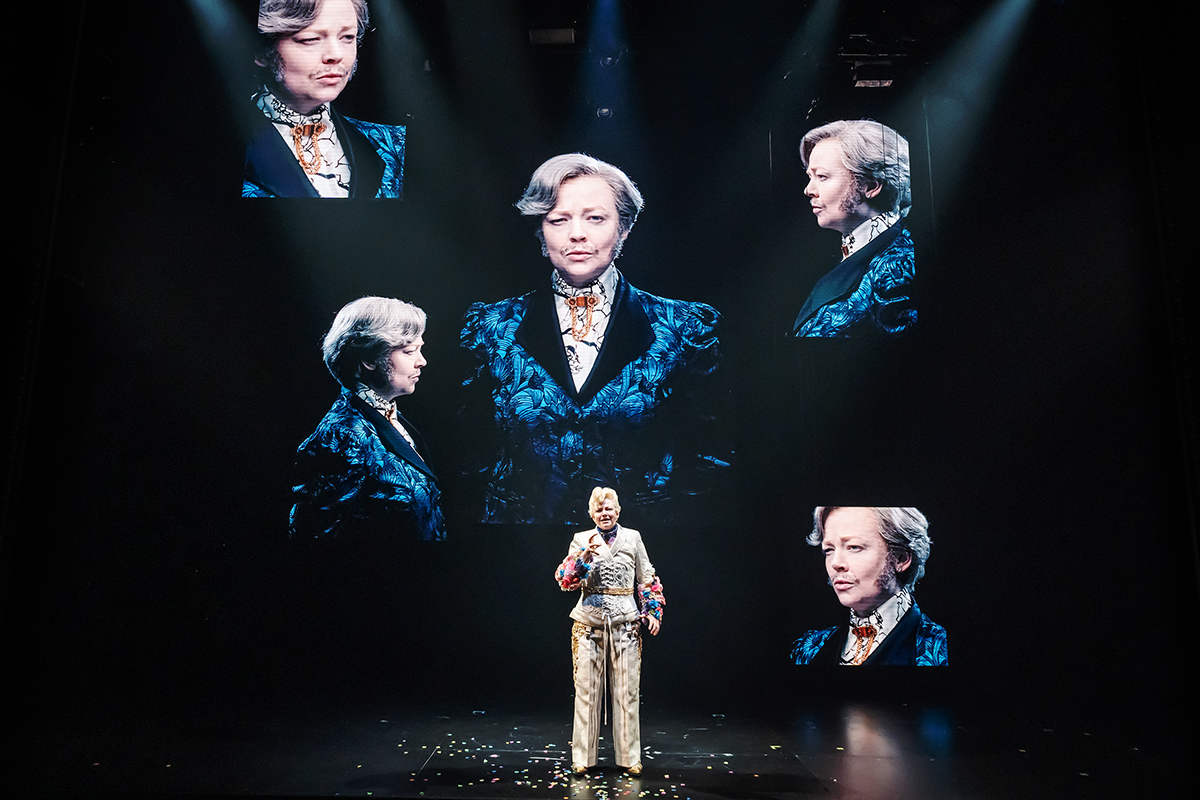

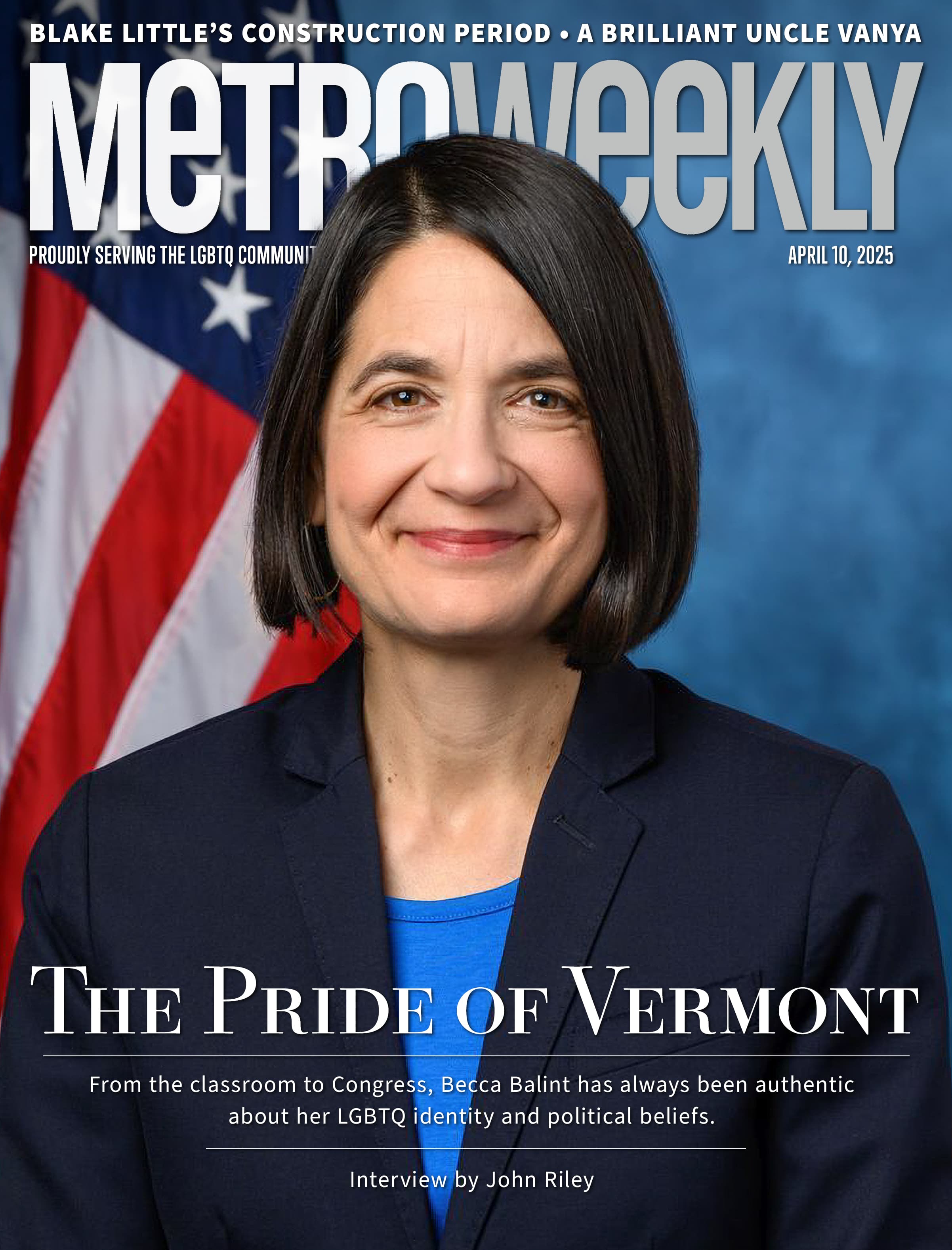















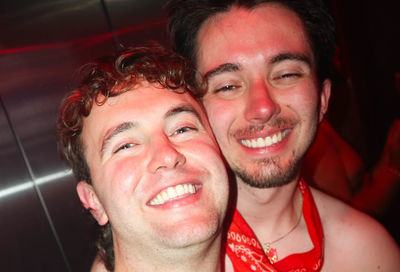
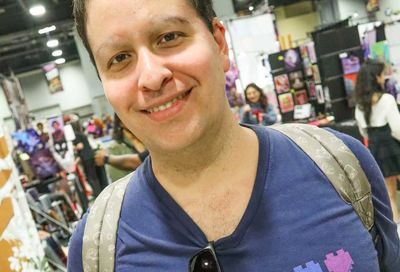
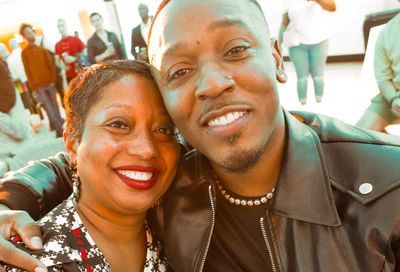
You must be logged in to post a comment.